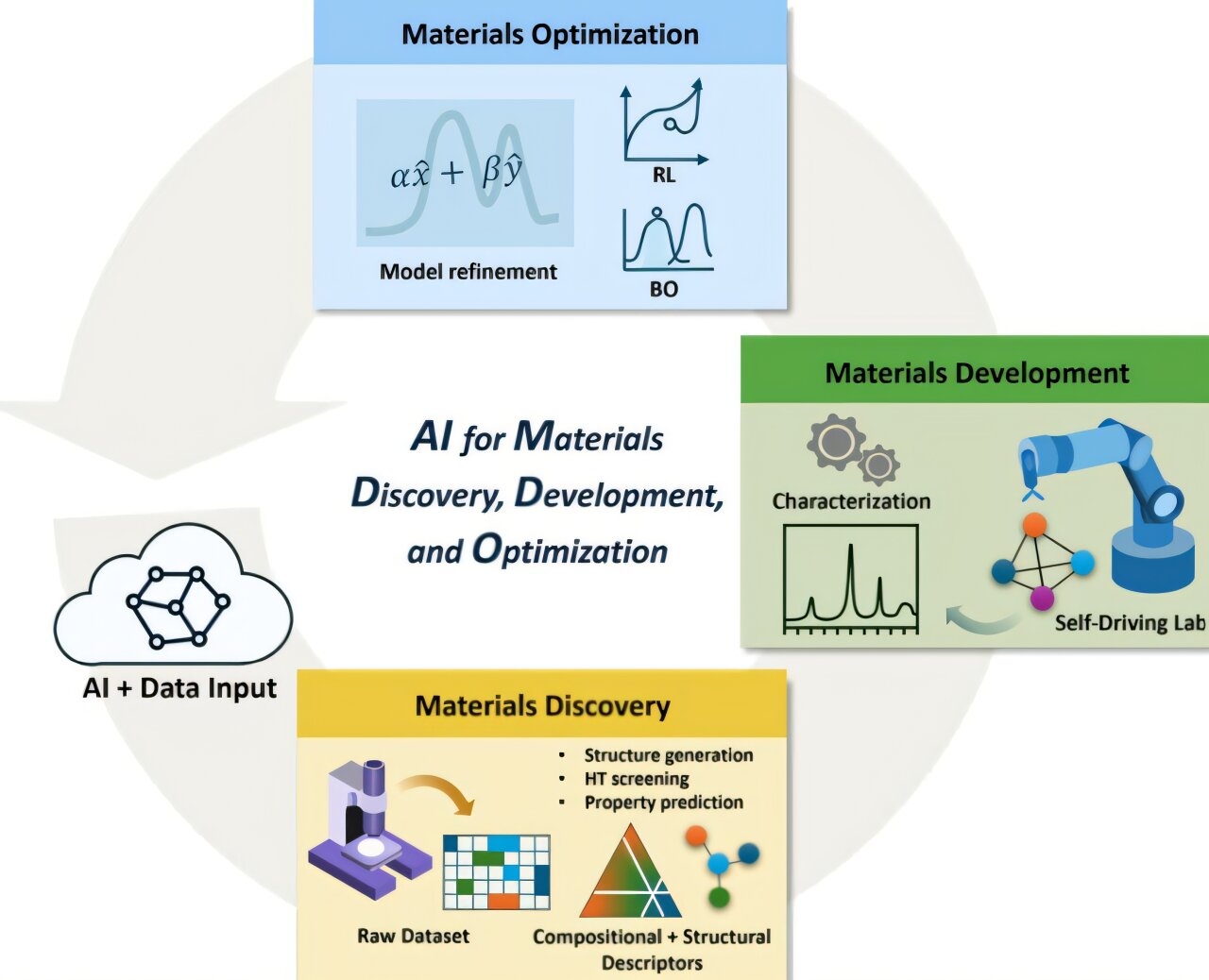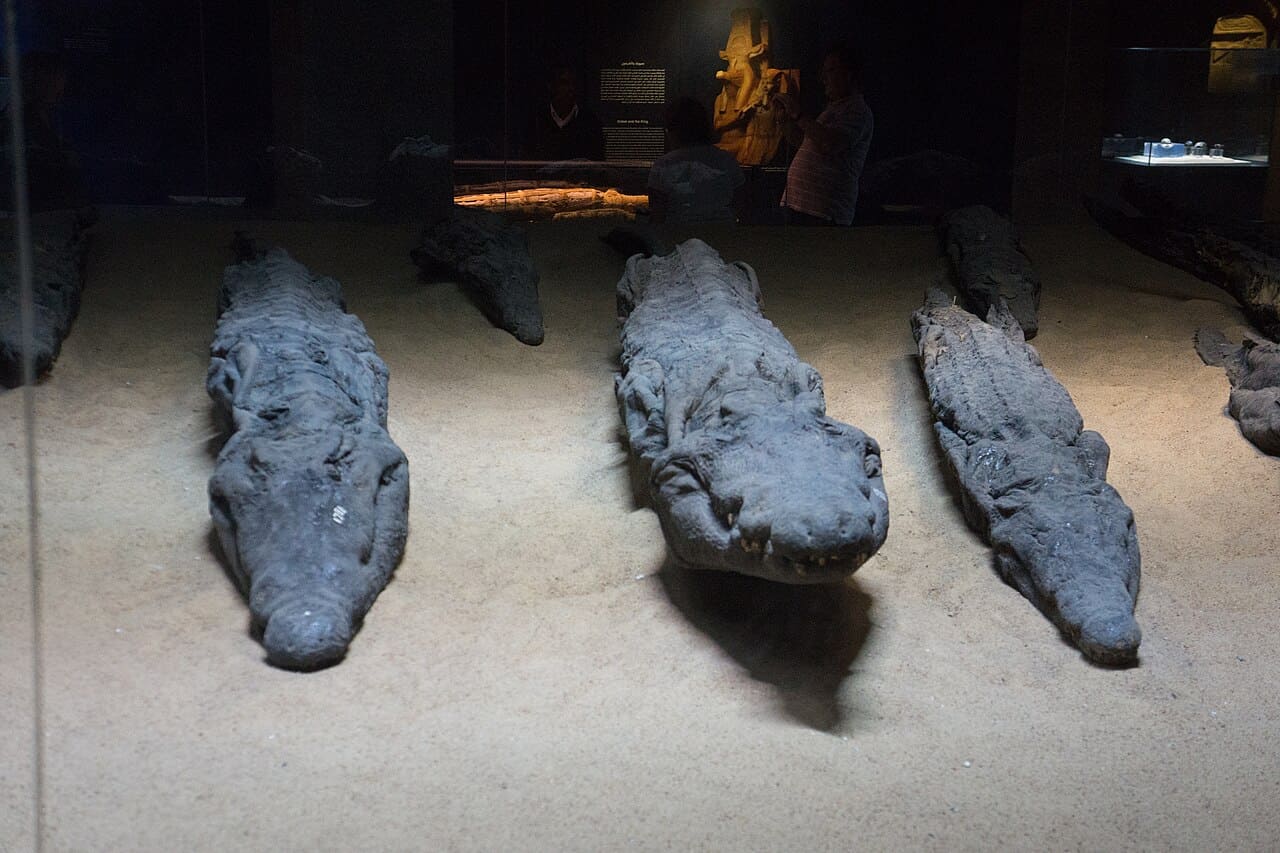
AI drives innovation throughout the entire cycle of discovery, development and optimization of new materials. Credit: ACS Nano (2025). DOI: 10.1021/acsnano.5c04200
The era has arrived when artificial intelligence (AI) autonomously imagines and predicts the structures and properties of new materials. Today, AI functions as the researcher’s “second brain” and is actively involved in every stage of research, from idea generation to experimental validation.
A complete review document published in ACS Nano discusses the impact of artificial intelligence, machine learning (ML), and deep learning (DL) technologies on materials science and engineering. The paper was co-authored by Professor Seungbum Hong and his team from the Department of Materials Science and Engineering at KAIST, in collaboration with researchers from Drexel University, Northwestern University, the University of St Andrews and the University of Tennessee in the United States.
The research team proposed a full-cycle utilization strategy for materials innovation through an artificial intelligence-based catalyst search platform, which incorporates the concept of an autonomous laboratory, a system in which robots autonomously perform material synthesis and optimization experiments.
Professor Hong’s team classified materials research into three main stages (discovery, development and optimization) and detailed the distinctive role of AI in each phase:
In the discovery stage, AI designs new structures, predicts properties, and quickly identifies the most promising materials among vast pools of candidates.
At the development stage, AI analyzes experimental data and autonomously adjusts experimental processes through autonomous laboratory systems, significantly shortening research timelines.
In the optimization stage, AI employs reinforcement learning, which identifies optimal conditions through Bayesian optimization, which efficiently finds superior results with minimal experimentation, to adjust process designs and conditions to achieve maximum performance.
In essence, AI serves as an “intelligent assistant” that selects the most promising materials, reduces experimental trial and error, and autonomously optimizes experimental conditions to achieve the best results.
The article further highlights how cutting-edge technologies such as generative AI, graph neural networks (GNN), and transformer models are transforming AI from a computational tool to a “thinking researcher.” However, the team cautions that AI predictions are not error-proof and that key challenges remain, such as unbalanced data quality, limited interpretability of AI predictions, and the integration of heterogeneous data sets.
To address these limitations, the authors emphasize the importance of developing artificial intelligence systems capable of autonomously understanding physical principles and ensuring transparent and verifiable decision-making processes for researchers.
The review also explores the concept of the autonomous laboratory, where AI autonomously designs experimental plans, analyzes results, and determines next experimental steps, without the need for manual operation by researchers. The AI-based catalyst search platform exemplifies this concept, allowing robots to automatically design, execute and optimize catalyst synthesis experiments.
In particular, the study presents cases where AI-driven experimentation has dramatically accelerated the development of catalysts, suggesting that similar approaches could revolutionize research in batteries and energy materials.
“This review demonstrates that artificial intelligence is emerging as the new language of materials science and engineering, transcending its role as a mere tool,” said Professor Seungbum Hong. “The roadmap presented by the KAIST team will serve as a valuable guide for researchers in Korea’s major domestic industries, including batteries, semiconductors and energy materials.”
More information:
Benediktus Madika et al, Artificial intelligence for materials discovery, development and optimization, ACS Nano (2025). DOI: 10.1021/acsnano.5c04200
Citation: AI now powers every stage of materials research, according to a review (2025, October 27) retrieved November 3, 2025 from https://phys.org/news/2025-10-ai-stage-materials.html
This document is subject to copyright. Apart from any fair dealing for private study or research purposes, no part may be reproduced without written permission. The content is provided for informational purposes only.
#powers #stages #materials #research #review #finds

![Lo que realmente ayuda a reparar el iPhone atascado en modo de recuperación [6 Ways]](https://thenewshub.website/wp-content/uploads/2025/12/image_2025-12-17_015538024-150x150.png)








